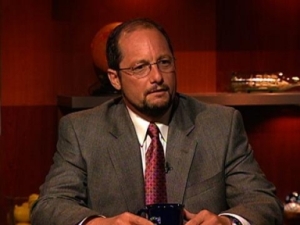
For discussion. What would you take out? What would you add?:
- “In the beginning was the Word, and the Word was with God, and the Word was God. He was in the beginning with God. All things were made through him, and without him was not any thing made that was made. In him was life, and the life was the light of men.” (John 1:1-4)
- “God is love, and he who abides in love abides in God, and God in him.” (I John 4:16)[i]
- “In this is love, not that we have loved God but that he loved us and sent his Son to be the propitiation for our sins.” (I John 4:10)
- “For the word of the cross is folly to those who are perishing, but to us who are being saved it is the power of God.” (I Cor. 1:18)
- Language – communication with those who address us or whom we address in order to talk to or about one another, the world, the variety of goals therein, etc. – is from God and is a great gift of His love.
- Operating under the assumption that there is a Divine Being who is responsible for the cosmos, it makes perfect sense to think that this Divine Being would take appropriate measures to clearly communicate with His creatures.
- Communication exists primarily for the sake of love between persons, particularly the Creator and the crown of His creatures, man.
- Johann Gerhard’s statement, “God has communicated his entire self to you. Communicate also your entire self to your neighbor”, is well said.
- While we communicate by a variety of largely non-oral means, God chooses to give us certainty of His gracious presence for us through simple and humble things like His words to us (also bread and wine).
- Not only are appointed ministers of the Gospel told that “he who hears you hears me”, but “if anyone speaks, let him speak the oracles of God”, that is, words, which are “at work in you believers”. (I Thes. 2:13)
- In fact, “The word… is a living and life-giving instrument of the Spirit; it is in and of itself light, life, power, as many, many Scripture passages explicitly and implicitly make clear”. (Wenz, Armin)

Was any of the N.T. God’s will? “Christ never wrote a word. Christ never commanded his disciples to write a word. They were commanded to go forth, preach the gospel and to Baptize.” — Father Stephen Freeman - At work in us, words shape and change us, either in the direction of maturity, as God desires, or immaturity, as His enemy the devil desires. It is through language that God reveals Himself to us and calls us by name.[ii]
- More specifically, the key purpose of communication, specifically but not limited to oral language, is that it enables us to share, intelligently navigate, pursue goals in, and enjoy the world and with other persons, present as well as past (i.e. remembering).
- Such is God’s design: all things were created first and foremost for us human beings to inhabit and share together in communion with Him.
- This is not to say that truth in language is unimportant – it is always important, even as technical accuracy is not always needed nor even desirable. To say “the sun rises” today still, post-Galileo, still does not strike us as wrong or in need of adjustment. This holds true for both oral and written communication, for example.
- What is more important – the basis for beneficial communication – is that persons be true, hence acting truly.[iii]
- Providentially, speech and the written word are especially critical for making clear to human beings what may be known about God, humanity, and God’s creation – as well as knowledge of our salvation: what it means to be justified before God and to live as His people.
- Usually – and sadly – when one hears about how we must articulate the “living reality” of Christian faith and an “organic-historical view” of the same, the real and substantial core of historic Christian proclamation is in the process of being removed.
- As regards the matter of proper interpretation of God’s word, man cannot avoid being an interpreter of what he hears, and yet, by the Spirit, he gladly acknowledges that the criterion of God’s word is not himself but God’s self.[iv]
- Passages like Rom. 3:19-20 instruct us that when we hear God’s word it is not the time for us to be emphasizing how we are inevitably interpreters of the words of others (perhaps even testing them against other things we know and are confident are true).
- The “validation” of God’s word is never subject to our evaluation of its truthfulness to any degree whatsoever. Nor is the establishment of God’s word in any degree based on our critical evaluation of it.
- Re: most modern theological hermeneutical approaches: “By principally making the interpretation [of the Christian Scriptures] dependent on an existentialist preunderstanding, which is supposedly “universal” to modern man, the result is not communication with the author of the message. Instead the result is nothing but a monologue with the reader.” (Wenz, Armin)[v]
- As God unfolds the Christian message before us, particularly from the Holy Scriptures (not a “dead letter in need of an external light”[vi]), much can be learned about the specific nature of the world He has created, including the crown of His creation, humanity.
- As regards the Christian Scriptures in particular, “Truths that might not be understandable or plausible, when seen in the light of preunderstanding [i.e. something like Plato’s anamnesis], receive their plausibility when seen in the light of their specific, that is, canonical context.” (Wenz, Armin)
- “It ain’t those parts of the Bible that I can’t understand that bother me, it is the parts that I do understand.” (Mark Twain)
- “…when [the Holy Spirit] comes, he will convict the world concerning sin and righteousness and judgment: concerning sin, because they do not believe in me…” (John 16: 8, 9)
- “[God] has fixed a day in which He will judge the world in righteousness through a Man whom He has appointed, having furnished proof to all men by raising Him from the dead.” (Acts 17:30)

Bart Erhman, mountain or molehill? The latter: highly respected by the world, but nevertheless easily dismissible. - “To join the human race is not merely a consequence of our biological birth; to become human is to answer, to become a language-maker ourselves, an activity that presupposes an interlocutor.” (Bade, David, linguist)
- We have no right to assert when that answering begins or has not begun. We should always error on the side of caution, assuming that it begins, in some real sense, when what we call “biological life” begins.
- We can responsibly speak about the meaning of the words persons speak to us. For example, “what do you mean by that?”
- Related to this, as regards the idea of “dialectic”, Abelard’s teacher Rosylyn was wrong to insist on what some have called “vocalism”: the idea that dialectic deals with words and not things.
- And yet, in addition to saying “…mean by that?” we also say “What do you mean?”, rightly putting the focus on the person and his intended meaning. And it is even more important to recognize and understand the persons involved – the wider context of the relationship, and, in fact, the meaning of the relationship.[vii]
- To say this is not to say that the world of non-persons – perceptible but uncommunicative or less communicative objects – is unimportant. It, of course, is critical.
- “God is love, and he who abides in love abides in God, and God in him.” (I John 4:16)
- “In the beginning was the Word, and the Word was with God, and the Word was God. He was in the beginning with God. All things were made through him, and without him was not any thing made that was made. In him was life, and the life was the light of men.” (John 1:1-4)

“God’s Word is like bread, intrinsically possessing nutritious power that does not depend on whether it is eaten or not.” – Abraham Calov
Additional food for thought:
For more on the issue of the perspicuity (clarity) of the Scriptures, listen to this White Horse Inn podcast. To see what a “behind-the-times” piker Karl Barth was, go to this post. For more about biblical hermeneutics, listen to this Just and Sinner podcast interviewing Pastor Rich Shields and see this post about Luther, Zwingli, and the Hermeneutical Principles of the Lutheran (Christian!) Church. For thoughts about the self-attestation of the truth and “self-authenticating” nature of the Christian message and its relation to evidential and rational considerations, see my series on TSSI (i.e. the “testimonium Spiritu Sancti internum” or internal testimony of the Holy Spirit).
FIN
Notes:
[i] This is truly what it means to start on a high note, rightly praising and exalting love, and strongly exhorting and enticing with the highest and most perfect example. If you talk all day about love being the most precious and most perfect virtue, it is as nothing compared to what John says: “God himself is love.” Accordingly, if you wanted to give a fitting depiction of God, you would have to come up with a picture that is sheer love, as if the divine nature is nothing but a fiery furnace and heat of such a love that fills heaven and earth. Conversely, if you could draw and depict love, you would have to come up with such a picture that would not be artful or human, not even angelic or heavenly, but that would be God himself. (Vol. I, Wittenberg ed., on 1 John) Luther’s Bible Treasures, Lutheran Press, Minneapolis, 2015
[ii] Some quotes from non-theologians exploring this more from a simple human perspective:
“Out of a thousand cares, impressions, and influences which surround, flow around, and beset it, a child gradually stakes out its borders as an independent entity. Its first discovery on its own, therefore, is that it is neither world, nor mother or father, nor God, but something else. The first thing that happens to the child–to every person–is that it is spoken to. It is smiled at, entreated, rocked, comforted, punished, given presents, or nourished. It is first a “you” to a powerful being outside itself–above all to its parents. …Hearing others say that we exist and mean something to them, and that they want something from us, precedes our articulating that we ourselves exist and our articulating what we ourselves are. We develop self-consciousness by receiving commands and by being judged from outside.” (Rosenstock-Huessy, quoted in David Bade, unpublished paper)
The linguist David Bade comments: “[in] Rosenstock-Huessy’s insistence that language is in its origin and [sic?] always the call of one to another, then rather than referring to language as a thing out there he is always referring to a community of speakers teaching us their language that we might make it our own, voices not within our brain but from the world around us who guide us into the world we make together “towards an unknown future.” It is the speaking community, not a linguistic system, that teaches us and guides us…
For Rosenstock-Huessy, our language is always a response to a prior call from another: we listen to the past and speak now towards the future. His understanding is also in marked contrast with the “scientific” linguistics of Max Müller who argued that “Languages can be analysed and classified on their own evidence … without any reference to the individuals, families, clans, tribes, nations or races by whom they are or have been spoken” (quoted on p. 16, Bade, unpublished paper)
Rosenstock-Huessy again: “Nature” is an abstraction from the saturated-with-language-world, the world minus speech. “Nature” is the result of a subtraction. It is a misleading word, because it seems innocent, a primordial sound, an “a priori.” Yet this is to get everything upside-down for in our actual experience voices call us into life first of all, and water, earth, and wind may concern us only after membership in society and participation in language securely lash us above the abyss of nature. (Rosenstock-Huessy, quoted in David Bade, unpublished paper)
[iii] “true” can also mean good things like being genuine, authentic, sincere, caring, firm in allegiance, loyal, steadfast as well. For example, we speak of true feelings, having a true interest in another’s welfare, or being a true friend. Here, in this sense, it seems to me that “real” could serve as a synonym of true. See http://dictionary.reference.com/browse/true
[iv] For example, these statements from Fowl, in his book “Engaging Scripture”, are problematic: “…theological convictions, ecclesial practices, and communal and social concerns should shape and be shaped by biblical interpretation” and “Biblical interpretation will be the occasion of a complex interaction between the biblical text and the varieties of theological, moral, material, political, and ecclesial concerns that are part of the contexts in which they find themselves.” (p. 60).
As an alternative to this way of putting it, I recommend something like the following:
In the midst of the regular human act of listening (or reading), proper interpretation of the Christian Scriptures in man’s imagination in these last days is a gift of God given by the Holy Spirit, has Christ as its focus, and no longer interprets particular books of the Scriptures in, to some degree, the light of the contemporary circumstances of the church within the world, but now interprets contemporary circumstances in the church within the world primarily in light of the whole of the Scriptures, as the Holy Spirit uses Scripture to interpret Scripture, in line with the legitimate oral tradition bound by the rule of faith (i.e. interpretation is conformed to the articles of faith, the loci, or “seats of doctrine”) and attested to by miracles, i.e. those performed among men by the Triune God
[v] And in the context of an scientifically naturalistic understanding of the world, even infused with some kind of pantheism or soft theism, doing theology from an existential framework is simply a stepping stone towards shifting or adapting “universal” understandings – antithetical to God’s eternal law and gospel.
[vi] Because of God’s providence and the personal power of the Holy Spirit who is always ready to speak to mankind, we cannot responsibly say otherwise than that God’s Word is like bread, intrinsically possessing nutritious power that does not depend on whether it is eaten or not (Calov) – this means that the Scriptures as well must always be seen as a spiritual, effective and sacramental power (Wenz, Armin)…
[vii] “When we answer, we neither repeat merely what the first speaker has said nor do we start in our own language. … To articulate, then, is a highly complicated act that implies both: identity and variation. Without identifying ourselves with the language as it stands, and as we find it, we cannot say our word, and without varying and deflecting this material in a specific direction that is constituting a new situation created by our own choosing, our entering the ring of the speaking folks would be useless. … the irresponsible way of using ready-made slogans and judgments in mere repetition without making them ourselves here and now, under our own name, is a vilification of language.” (Rosenstock-Huessy)….
The linguist David Bade comments again: “Barthes, Harris and Rosenstock-Huessy might all have agreed that the unsponsored language of slogans was politically irresponsible and destructive of human relationships, but Rosenstock-Huessy went so far as to insist that in authentic speech there are not only no repetitions but “Es gibt keine Synonyme. [There are no synonyms.]” (Rosenstock-Huessy).”
My note: all interesting thoughts worthy of reflection: but to avoid an infinite regress here, we must assume some common ground somewhere – where we can, in a very real sense, begin to understand one another and the things we choose to speak about because we begin to really understand the words that are being used.
















